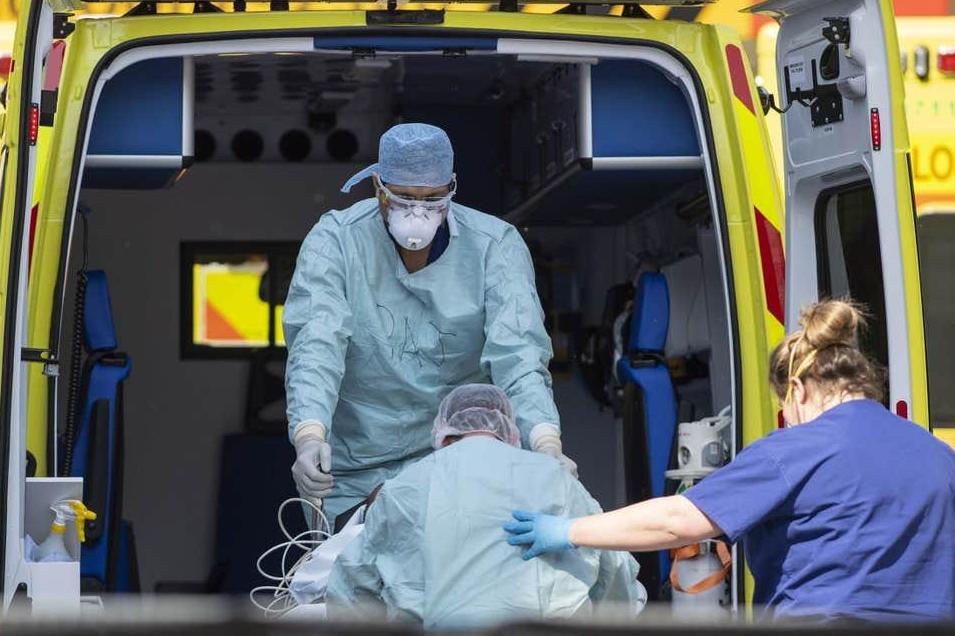Coronavirus: Half of health workers experiencing increased levels of stress and trauma
Less than a third say government is doing enough to help healthcare workers

Your support helps us to tell the story
From reproductive rights to climate change to Big Tech, The Independent is on the ground when the story is developing. Whether it's investigating the financials of Elon Musk's pro-Trump PAC or producing our latest documentary, 'The A Word', which shines a light on the American women fighting for reproductive rights, we know how important it is to parse out the facts from the messaging.
At such a critical moment in US history, we need reporters on the ground. Your donation allows us to keep sending journalists to speak to both sides of the story.
The Independent is trusted by Americans across the entire political spectrum. And unlike many other quality news outlets, we choose not to lock Americans out of our reporting and analysis with paywalls. We believe quality journalism should be available to everyone, paid for by those who can afford it.
Your support makes all the difference.NHS personnel are reporting increased feelings of stress and trauma, according to a YouGov poll for the Institute for Public Policy Research (IPPR) thinktank.
The coronavirus outbreak is having a “severe impact” on the mental wellbeing of NHS workers as well as agency staff, GPs and dentists, the research shows.
The poll also found that rates of anxiety and burnout are far higher than usual, with 50 per cent of 996 healthcare workers surveyed saying their mental health had deteriorated since Covid-19 began affecting the UK.
The research suggests that younger healthcare workers have been disproportionally affected, with 71 per cent reporting a decline in mental health. More women were affected than men.
Just under half of those surveyed said they worried about their family’s safety due to a lack of personal protective equipment (PPE) for NHS workers.
Less than a third of healthcare workers felt the government was doing enough to protect their mental health – 43 per cent of those said too little was being done.
Mental health issues during the pandemic led 25 per cent of healthcare workers to say they are considering quitting their jobs.
“Our care heroes are making significant sacrifices to pull our country through this crisis", said IPPR research Chris Thomas, lead author of the report.
“It is imperative [the] government does not allow their efforts to become a modern Charge of the Light Brigade.”
The report urges ministers to recognise the huge contribution NHS staff are making during a time of national crisis.
It also calls for “Covid-19 pay bonus” equivalent to 10 per cent of their salary, plus better mental health provisions for NHS staff.
“Now, just as after World War One there was the ‘homes fit for heroes’ drive and after World War Two the establishment of the ‘cradle to grave’ NHS, the government must now deliver ‘care fit for carers’,” the report adds.
“Individual staff members will be coping personally with the Covid-19 pandemic in their own way and at their own pace, and will continue to look after patients and those they care for, many of whom are scarred by their experiences,” said Dr Emma Vaux, the Royal College of Physicians’ vice-president for education and training.
Saffron Cordery, the deputy chief executive of NHS Providers, which represents hospital trusts in England, said: “This report makes clear the very real and varied impacts of this devastating outbreak of Covid-19 on the lives of health and care staff, and the wider general public.
“It is extremely concerning over 70 per cent of healthcare professionals felt the government has not been doing enough to protect and test them, while there is also a worrying level of dissatisfaction in the availability of mental health support for staff, particularly among nurses and midwives.”
An NHS England spokesperson said: “NHS staff are currently fighting the biggest healthcare challenge in generations, so extra support is both needed and available, including offering NHS mental health support within trusts, and new text, online and telephone support services.”
Join our commenting forum
Join thought-provoking conversations, follow other Independent readers and see their replies
Comments